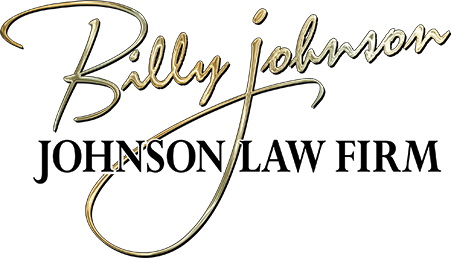Not all bumps to the head result in damage, but most should be taken seriously. Our brains are delicate organs responsible for a wide variety of tasks, so although it can be tempting to downplay injury, doing so can be a big mistake. Awareness of the dangers of brain injuries is essential to safety. It has been estimated that traumatic brain injuries (TBIs) are so common that each year, they contribute to more than one-quarter of injury-related deaths and are a diagnosis in millions of emergency department visits. A popular buzzword in mainstream media right now due to the NFL, “concussions” are a mild form of TBI, and the terms should not be used interchangeably.
TBIs are caused by a blow to the head or body that causes the brain to move quickly back and forth, slamming into the sides of the skull. Even when the force is not violent, injury can result from sudden movements that squeeze or stretch the neural cells and change the precise balance needed for proper information processing.
The Centers for Disease Control and Prevention (CDC) developed the following definition of mild brain injury:
A case of mild traumatic brain injury is an occurrence of injury to the head resulting from blunt trauma or acceleration or deceleration forces with one or more of the following conditions attributable to the head injury during the surveillance period:
- Any period of observed or self-reported transient confusion, disorientation, or impaired consciousness;
- Any period of observed or self-reported dysfunction of memory (amnesia) around the time of injury;
- Observed signs of other neurological or neuropsychological dysfunction, such as—
- Seizures acutely following head injury;
- Among infants and very young children: irritability, lethargy, or vomiting following head injury;
- Symptoms among older children and adults such as headache, dizziness, irritability, fatigue, or poor concentration, when identified soon after injury, can be used to support the diagnosis of mild TBI, but cannot be used to make the diagnosis in the absence of loss of consciousness or altered consciousness. Further research may provide additional guidance in this area.
- Any period of observed or self-reported loss of consciousness lasting 30 minutes or less.
Concussions: These Mild TBIs are Serious Business
Even mild TBIs can be difficult to recover from, especially for young children, older adults, and those who have had TBIs before. The CDC estimates that people with moderate to severe TBIs encounter a number of chronic health problems and live nine years less than people without a TBI.Traumatic brain injuries (TBI) may not leave visible bruises, but even a single blow to the head, if violent enough, can have permanent effects on intellectual, physical, and mental functions. The severity of a TBI depends on the type and amount of force that impacts the head. Concussions are a form of mild TBI and happen so often that 75 percent of all Americans will likely have at least one during their lifetime.
The most frequent causes of concussions are vehicle accidents, sports, and falls. While a car wreck can result in just about any personal injury, concussions are extremely common because they can occur even without a direct hit to the head. Even a minor fender bender can bump the brain enough to produce a concussion, because the brain continues forward at the same speed as the car until it hits the skull’s front wall – and then it bounces back against the skull’s rear wall. The impact of a traffic accident causes the brain’s soft tissue to smash back and forth against the skull’s hard bone, causing bruising, bleeding, and tearing of nerve fibers.
Athletics can be personally rewarding, but they also come with a high probability of injury. Whether amateur or professional, youth or adult, practice or game, any sport can result in a player’s getting a concussion. Many athletes find it difficult to admit to injury, knowing they may be pulled from the game. However, the gravity of the possible consequences means that any athlete suspected of experiencing a concussion should immediately be removed from play, and the process of returning should be gradual. Guidelines designed to probe and punish teams that violate concussion protocol have been adopted by the NFL and the NFL Players Association.
Slips and falls can happen to anyone, but they often lead to concussions when they happen to an elderly person. Seniors are likely to hit their head when they fall, to take more time to heal, and to take anticoagulant medications that can make them extremely vulnerable to the effects of a bump to the head. Doing balance-improving exercises, wearing shoes indoors, and not getting up from a seated position too quickly can all help reduce an older person’s risk of falling.
 Because they involve such a fragile organ, even slight concussions are not considered minor injuries. In fact, they can typically be scored as one of three grades: mild, moderate, and severe. While disorientation usually accompanies all grades of concussion, other emotional, physical, and cognitive symptoms may not be immediately noticeable. Brain injuries can take a delayed path, initially having either no obvious signs or insignificant ones that worsen over time. That’s why it’s always wise to seek medical care if you’ve had a jolt to the head.
Because they involve such a fragile organ, even slight concussions are not considered minor injuries. In fact, they can typically be scored as one of three grades: mild, moderate, and severe. While disorientation usually accompanies all grades of concussion, other emotional, physical, and cognitive symptoms may not be immediately noticeable. Brain injuries can take a delayed path, initially having either no obvious signs or insignificant ones that worsen over time. That’s why it’s always wise to seek medical care if you’ve had a jolt to the head.No concussion should be taken lightly, especially because each concussion that a person suffers makes it more likely that he or she will experience another. A history of concussions adds to recovery time, and people with repeated head trauma can incur permanent brain damage if they go back to normal activities before a concussion is completely healed. The best treatment for any concussion is rest.
If you or a loved one has suffered a TBI due to someone else’s negligence, or if you have any questions about this topic, you can find out more by discussing it with one of the personal injury attorneys at the Johnson Law Firm. We have years of experience helping people, and we can help you. Our knowledgeable legal team will work closely with you every step of the way and will fight hard to get you the compensation you deserve. Based in Pikeville, KY, we proudly serve communities throughout the Bluegrass State. Contact us by calling 606-437-4488 or filling out our online form.



 William “Billy” Johnson grew up in the Dorton area of Pike County, Kentucky, and early on decided to stay in the beautiful Appalachian mountains. Like many others in Eastern Kentucky, Billy’s dad worked as a coal miner, a hard job but one that taught his son how to meet challenges head on and persevere. Attorney Billy Johnson has years of experience helping injured clients with claims such as car, truck, and motorcycle accidents, wrongful deaths, work injuries, and more. [
William “Billy” Johnson grew up in the Dorton area of Pike County, Kentucky, and early on decided to stay in the beautiful Appalachian mountains. Like many others in Eastern Kentucky, Billy’s dad worked as a coal miner, a hard job but one that taught his son how to meet challenges head on and persevere. Attorney Billy Johnson has years of experience helping injured clients with claims such as car, truck, and motorcycle accidents, wrongful deaths, work injuries, and more. [ 



